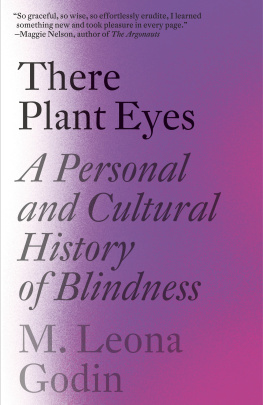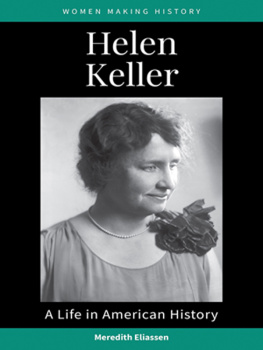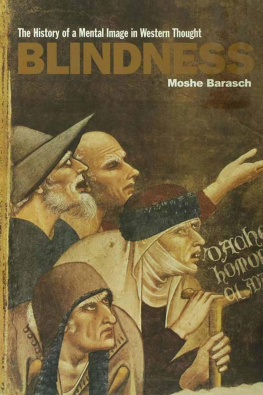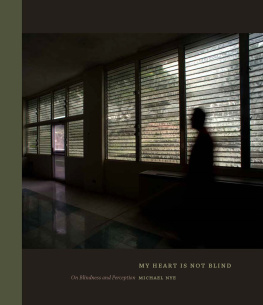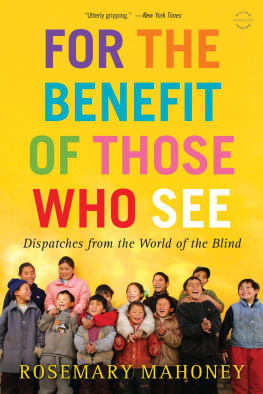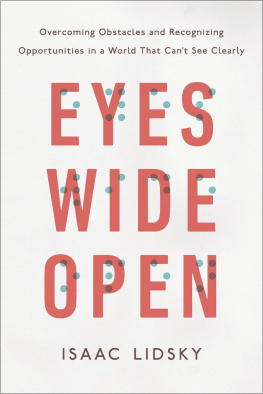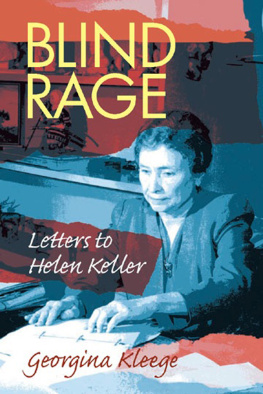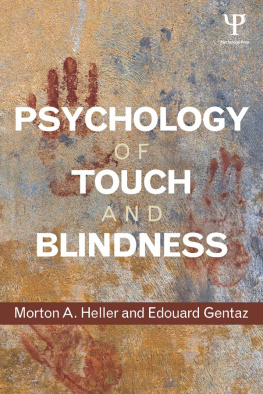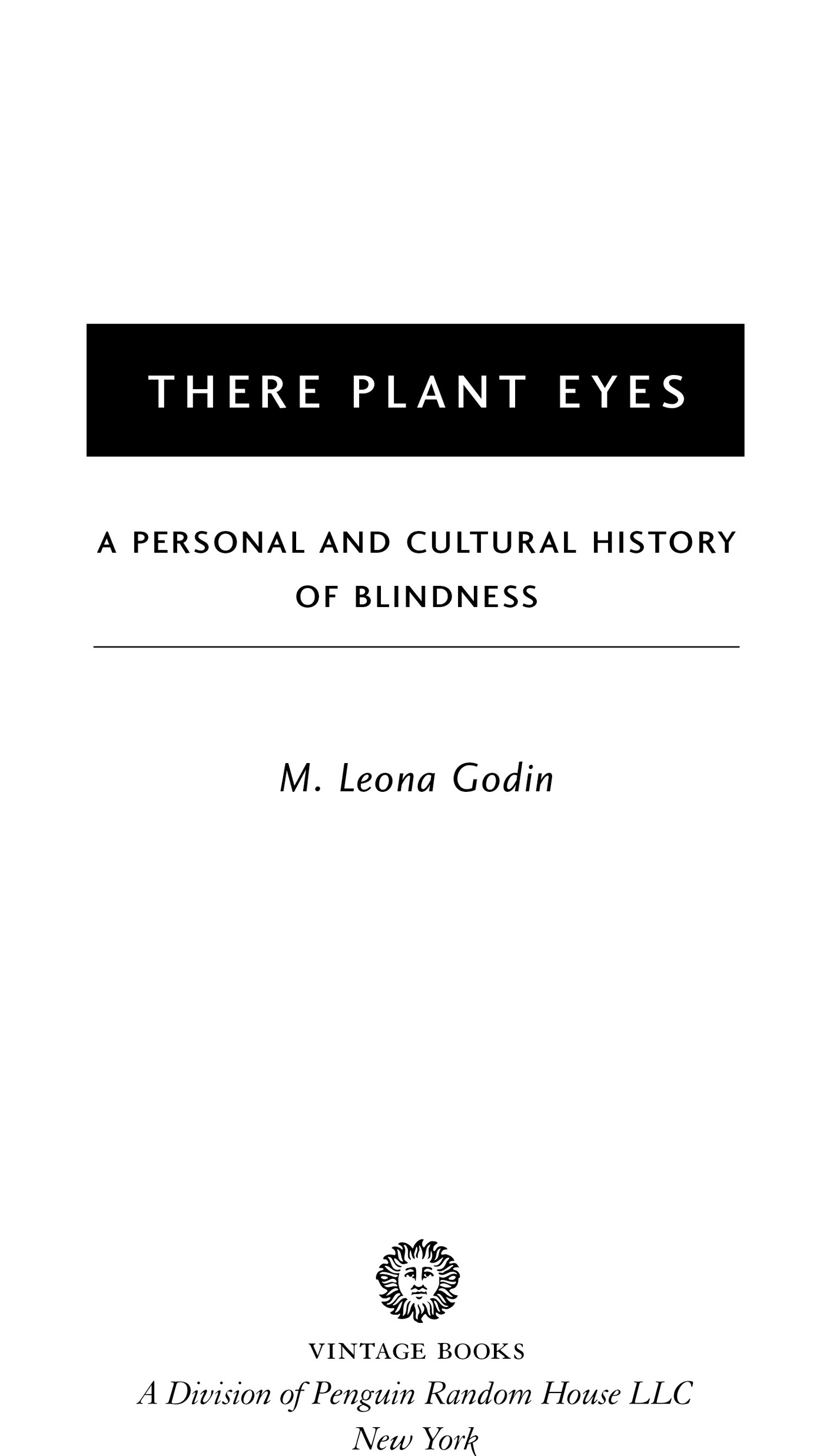Contents
Landmarks
Print Page List
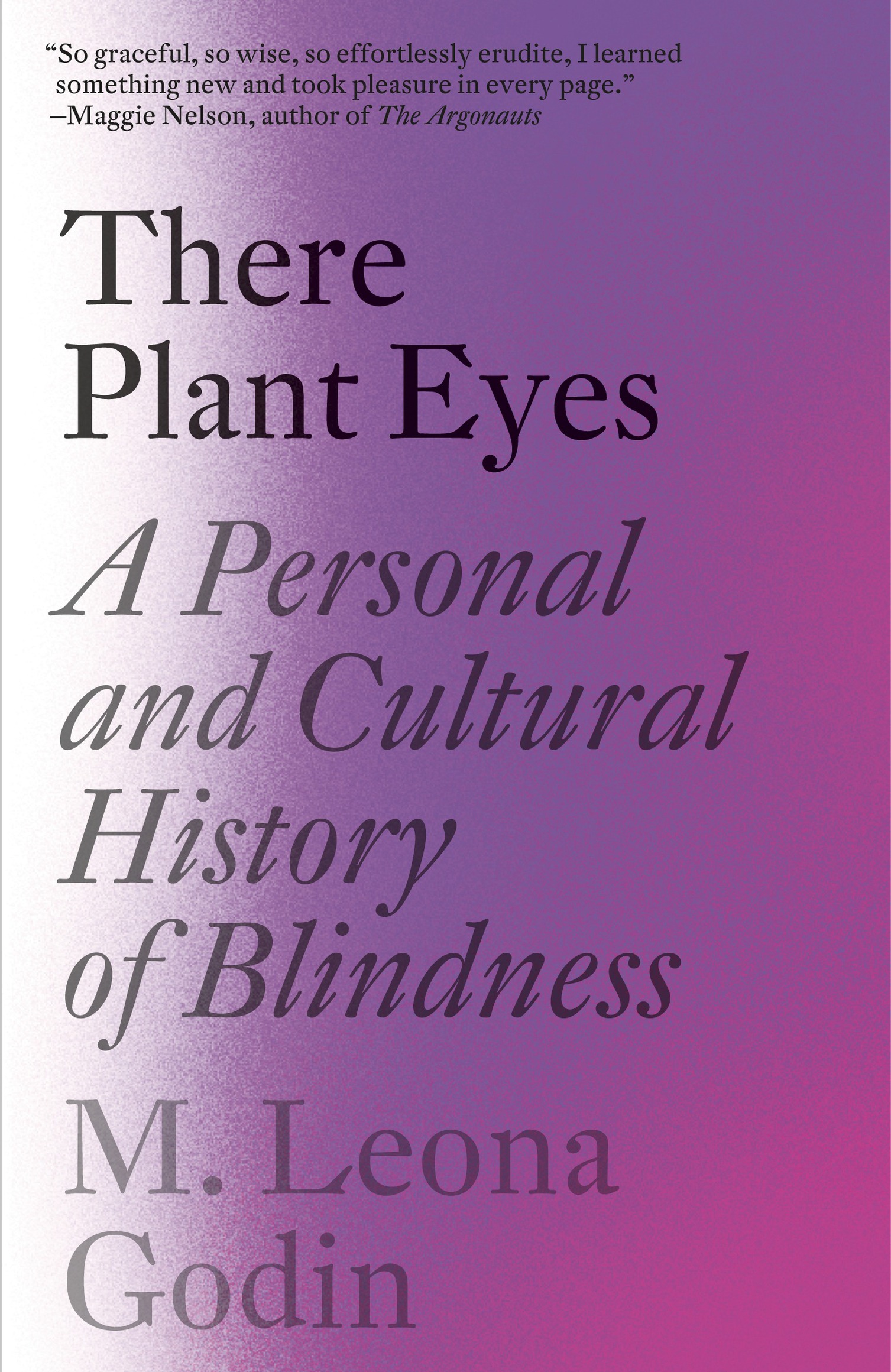
Praise for M. Leona Godins
THERE PLANT EYES
A revealing and humorous account of how blindness has been misunderstood by the sighted. By turns heartfelt and thought-provoking, this is a striking achievement.
Publishers Weekly (starred review)
We are inevitably blind to realities outside our own experience, and it takes a sensitive writer like Godinwith her poets earto give insight into sightlessness.
David Eagleman, neuroscientist at Stanford University and author of Livewired
This sighted disabled person learned so much from There Plant Eyes! The book took me on a cultural journey that showed how blindness is beautiful, complex, and brilliant.
Alice Wong, editor of Disability Visibility: First-Person Stories from the Twenty-First Century
A passionate argument for placing blind people at the center of their own stories. An insightful and wide-ranging book that asks sighted readers to examine the myriad ways in which our culture uses concepts of blindness as metaphor or morality tale while simultaneously ignoring the existence, insights, and experiences of blind people. There Plant Eyes speaks eloquently and urgently to the necessity of making space for blind thinkers within our ocular-centric world.
Booklist
Godin moves effortlessly from erudite explorations of the construction of blindness to incisive and often funny examinations of technology that helpsor does not helpthe blind individual to personal stories of her own life. I was only a few pages in before I realized that what I thought about being blind was either wrong or woefully insufficient. The reader will be lost in admiration for Godins gifts as a writer and cultural critic.
Riva Lehrer, author of Golem Girl: A Memoir
[An] erudite, capacious book. Godin approaches her subject from a unique perspective. Now blind, she gradually lost her sight from retinal dystrophy, a frightening process she poignantly recounts throughout the book. As Godin wonderfully shows, weve come a long way in our quest to understand what blindness means.
Kirkus Reviews
Ive been waiting most of my life for a book like There Plant Eyes to demystify what it means and doesnt mean to be blind. With eloquence and wit, M. Leona Godin articulates what our culture has gotten wrong for centuries. Blindness, she makes clear, is a feature, not merely a difference. Ill be recommending this book every chance I get.
James Tate Hill, author of Blind Mans Bluff: A Memoir
Godin guides readers through the surprising twists and turns in Western blind history, from ancient seers to contemporary scientists. The lively writing style and memorable personal anecdotes are delightful. This book is a gift to both blind and sighted readers.
Haben Girma, human rights lawyer and author of bestselling Haben: The DeafblindWoman Who Conquered Harvard Law
M. Leona Godin
THERE PLANT EYES
M. Leona Godin (pronounced like French sculptor Rodin) is a writer, performer, and educator. Her writing has appeared in The New York Times; Playboy; O, The Oprah Magazine; Electric Literature; Catapult; and other print and online publications. She produced two plays: The Star of Happiness, about Helen Kellers time performing in vaudeville, and The Spectator and the Blind Man, about the invention of braille. She is currently working on Worlds We Live In, a feature-length documentary about blind culture for the American Foundation for the Blind. Godin holds a PhD in English, and besides her many years teaching literature and humanities courses at NYU, she has lectured on art, accessibility, technology, and disability at such places as Tandon School of Engineering, Rice University, Baylor College of Medicine, and the American Printing House for the Blind. Her online magazine exploring the arts and sciences of smell and taste, Aromatica Poetica, publishes writing and art from around the world.
drmlgodin.com
FIRST VINTAGE BOOKS EDITION 2022
Copyright 2021 by M. Leona Godin
All rights reserved. Published in the United States by Vintage Books, a division of Penguin Random House LLC, New York, and distributed in Canada by Penguin Random House Canada Limited, Toronto. Originally published in hardcover in the United States by Pantheon Books, a division of Penguin Random House LLC, New York, in 2021.
Vintage and colophon are registered trademarks of Penguin Random House LLC.
Some of the material in this book originally appeared, in very different form, in Catapult, Playboy, and The New York Times.
The Library of Congress has cataloged the Pantheon edition as follows:
Name: Godin, M. Leona, author.
Title: There plant eyes : a personal and cultural history of blindness / M. Leona Godin.
Description: First edition. | New York : Pantheon Books, 2021. | Includes bibliographical references and index.
Identifiers: LCCN 2020045789 (print) | LCCN 2020045790 (ebook)
Subjects: LCSH : BlindHistory. | BlindnessSocial aspects. | Blind in literature. | Blind in art.
Classification: LCC HV 1581 . G 63 2021 (print) | LCC HV 1581 (ebook) | DDC 305.9/08109dc23
LC record available at https://lccn.loc.gov/2020045789
LC ebook record available at https://lccn.loc.gov/2020045790
Vintage Books Trade Paperback ISBN9781984898401
Ebook ISBN9781524748722
Cover design by Janet Hansen
vintagebooks.com
ep_prh_6.0_140847919_c0_r0
For Mom, in loving gratitude
For Dad, in loving memory
Contents
1.
Homers Blind Bard
2.
The Tenacious Grip of the Blind Seer
3.
I Once Was Blind, but Now I See
4.
Out, Vile Jelly!
5.
Telescopes, Microscopes, Spectacles, and Speculations
6.
Darkness Visible
7.
The Molyneux Man
8.
Performing Enlightenment
9.
Braille and His Invention
10.
The Tap-Tapping of Blind Travelers
11.
Helen Keller in Vaudeville and in Love
12.
Sanctified by Affliction, or Not
13.
Portrait of the (Working) Writer as Blind
14.
The Secret Life of Art and Accessibility
15.
The Scylla and Charybdis of Stigma and Superpowers
16.
The Invisible Gorilla and Other Inattentions
17.
Constructing Blind Pride out of Ancient and Evolutionary Blind Memes
Introduction
Seeing and Not-Seeing
When I was ten years old, I suddenly could no longer see the writing on the blackboard from the back of the class. This at first seemed a trivial issue of my needing glasses, but it turned out that my vision could not be corrected. Several optometrist and ophthalmologist appointments came in quick succession, in which the men in white coats provided increasingly absurd explanations to cover their impotence, including one who told my mother, Her eyes are growing too fast for her body. Or perhaps it was, Her body is growing too fast for her eyes.
After visiting several doctors in the creaky bungalows on the outskirts of the Presidios medical complex in San Francisco, my mother and I finally found ourselves face-to-face with a hotshot ophthalmologist in the impressive upper floors of the Letterman Army Hospital, where Lucasfilm now has its headquarters. Although I had spent my first three and a half years living in the Netherlands, after my parents divorce, my mother and I had moved back to their hometown of San Francisco, while my father (an officer in the Air Force) continued his travels around the world. Thanks to him, I received benefits with my military dependent card, and so my mom and I often drove into the Presidio for free health care and cheap commissary groceries.

